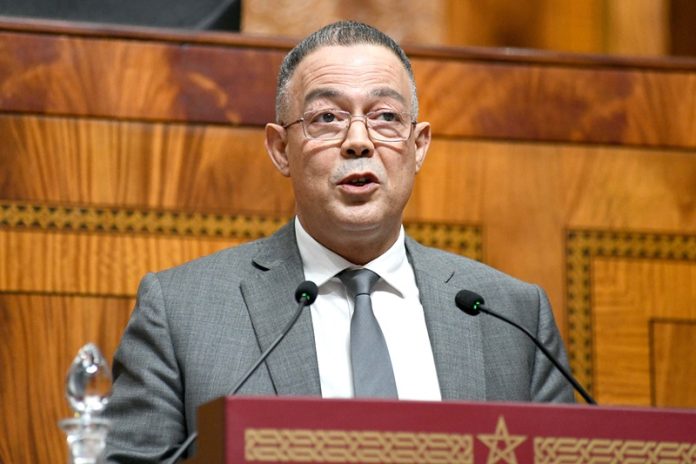Fouzi Lekjaa, Morocco’s Minister Delegate in charge of the Budget, presented key amendments to the 2025 Finance Bill (PLF No. 60.24) on Tuesday at the House of Councillors. The proposed measures focus on reforms to income tax (IR), value-added tax (VAT), and customs regulations, aiming to boost fiscal fairness and support economic growth.
The income tax structure has been revised to provide greater relief for low and middle-income earners. The threshold for tax-exempt annual net income has been raised from 30,000 to 40,000 dirhams, effectively exempting monthly salaries below 6,000 dirhams.
Other income brackets have seen reduced tax rates, and the deduction for family charges has increased from 360 to 500 dirhams per dependent. Additionally, employer-provided meal vouchers will now cover up to 40 dirhams per day, up from 30 dirhams, with electronic payments now permissible.
Further changes include updated conditions for tax exemptions on stipends for interns hired by private-sector companies. If interns switch employers, they will retain their exemption for up to 12 months. Improvements to tax treatment for rental income and adjustments for unclaimed supplemental retirement contributions were also introduced.
A temporary VAT exemption for limited imports of certain live animals and agricultural products has been introduced for 2025, aiming to stabilize the domestic market and ensure affordable prices.
Additionally, the minimum share of VAT revenues allocated to local government budgets has been increased from 30% to 32%, strengthening territorial development initiatives.
Significant updates in customs policies include the removal of late-payment penalties for local governments on duties and taxes, aligning them with public institutions. Import duties on specific goods have also been adjusted, such as a reduction from 40% to 2.5% for table honey in large containers, while tariffs on fiber-optic cables were increased from 10% to 17.5%.
New consumer taxes have been introduced, including a levy of 50 dirhams per unit on non-rechargeable electronic cigarettes and stricter compliance for marking diesel and premium gasoline products.
The 2025 Finance Bill aligns with sustainable development goals through measures like the suspension of import duties on limited quantities of certain live animals and agricultural goods from January 1 to December 31, 2025.
A new customs offense has been added, targeting the misuse or possession of official customs seals. Penalties for various customs violations have been lightened, and a new provision allows refunds for overpaid duties in cases of adjusted or canceled declarations.
The adopted measures reflect Morocco’s commitment to reforming its fiscal system, boosting local development, and fostering a fair and sustainable economy. By addressing tax relief, customs adjustments, and funding for local governments, the 2025 Finance Bill sets the stage for continued economic growth and regional prosperity.





